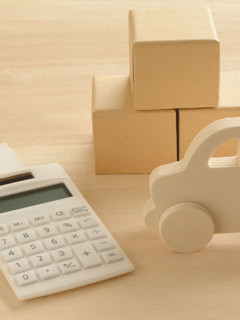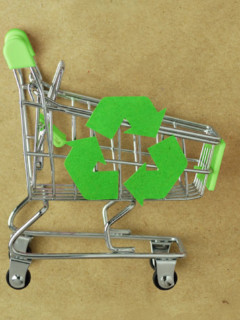Packaging-free supermarkets are becoming more and more common, even in smaller towns outside hip big cities (learn more about packaging-free shopping here).
Avoiding single-use plastic
A planned law will ban single-use plastics such as drinking straws and tableware throughout the EU in future – better, plastic-free alternatives will then be permitted from 2021. Consumers are increasingly attaching importance to the image of the brand: sustainability in purchasing and the company plays a major role for about 70 percent of customers. Almost 80 percent are even willing to pay more for a product with sustainable packaging. When you consider how long the consumer was “educated” until the change in thinking slowly crept in, you understand only too well that companies are somewhat more sluggish in implementing environmentally friendly actions. We too cannot “turn processes inside out” from one day to the next. But while the big changes are being worked on, there are already ways of exerting influence on a “small” scale. Every office worker can make a minimal contribution, for example by following these steps. Checklistcan already make a minimal contribution.
Companies: The biggest plastic sinners
Greenpeace published a study at the end of 2018 in cooperation with the “Break Free From Plastic” movement to identify the companies with the most plastic waste. For this, a total of 239 plastic clean-ups were carried out in 42 countries and the plastic pieces found were sorted by company. The plastic waste polluting the oceans is mainly attributable to food manufacturers, including Coca-Cola, PepsiCo and Nestlé, which together “account for” 14% of all plastic waste found (and attributable!) worldwide.
Education with the Packaging Act
Since the beginning of 2019, traders have had to comply with the new Packaging Act (VerpackG), which replaces the Packaging Ordinance (VerpackV). In a nutshell: Packaging that is aimed at private end consumers with an offer will be licensed. This also includes restaurants, hospitals, offices of freelancers and small businesses. Companies that make an offer to the so-called “private final consumers” will in future also have to pay for the disposal costs. The costs for licensing depend primarily on the type and quantity of the material: the better the packaging can be recycled, the cheaper the licence fee. Depending on the licensor, 150 kg of cardboard costs 75 €, 150 kg of plastics already 230 €. Natural materials, on the other hand, are the cheapest to license. The aim is to encourage companies to produce more sustainable products. The demand for environmentally friendly products should thus also be increased in the packaging industry.
Sustainability in the packaging industry
When ordering online, everything is shipped packaged – whether to private or commercial end consumers. The packaging mainly serves to protect the shipped goods, but with appealing packaging it also serves to increase customer loyalty: large companies such as Amazon and Zalando have long since discovered individualised shipping packaging for their marketing purposes. There are many possible ways to achieve more sustainability in packaging:
- Avoid packaging
- Reusable systems
- Paper instead of plastic
- Alternative raw materials
Research into alternative materials for plastic is being stepped up: Sugar, seaweed, mushrooms or milk are to be used to produce packaging as a substitute for plastic in the future. Packaging is already being used sporadically in organic shops.
Extending the life cycle of packaging
A rethink is needed: If the packaging is no longer just packaging, but brings an additional benefit or even becomes a product in its own right, the interest in buying can be increased. Every year, the German Packaging Award honours innovative packaging, and for years one of the main topics has been the avoidance of non-recyclable plastic. In 2018, the Grill Pyramid was among the award winners in the area of functionality and convenience. The packaging of the barbecue charcoal serves with integrated lighter and chimney effect for quickly glowing coals and subsequent barbecue experience. Because it is integrated into the product, there is no packaging waste. But beautiful gift boxes can also be used for storage or reuse. If the product packaging is not used as waste, but is provided with additional functions, this gives the product a sustainable added value and extends the life cycle or environmental balance of a product. In the best case, the product is purchased preferentially because of the packaging.
Everyone should act environmentally friendly
Recycling is not the solution, but it is a start. Without recycling, we would run out of resources in the longer term. By expanding recycling systems and using biodegradable products, the amount of waste can be recycled or avoided altogether. Packaging without plastic is a big step in the right direction. Do you also rely on sustainable products? We would be happy to advise you on the selection of our environmentally friendly packaging and introduce you, for example, to our semi-transparent glassine bags as an alternative to plastic bags.














